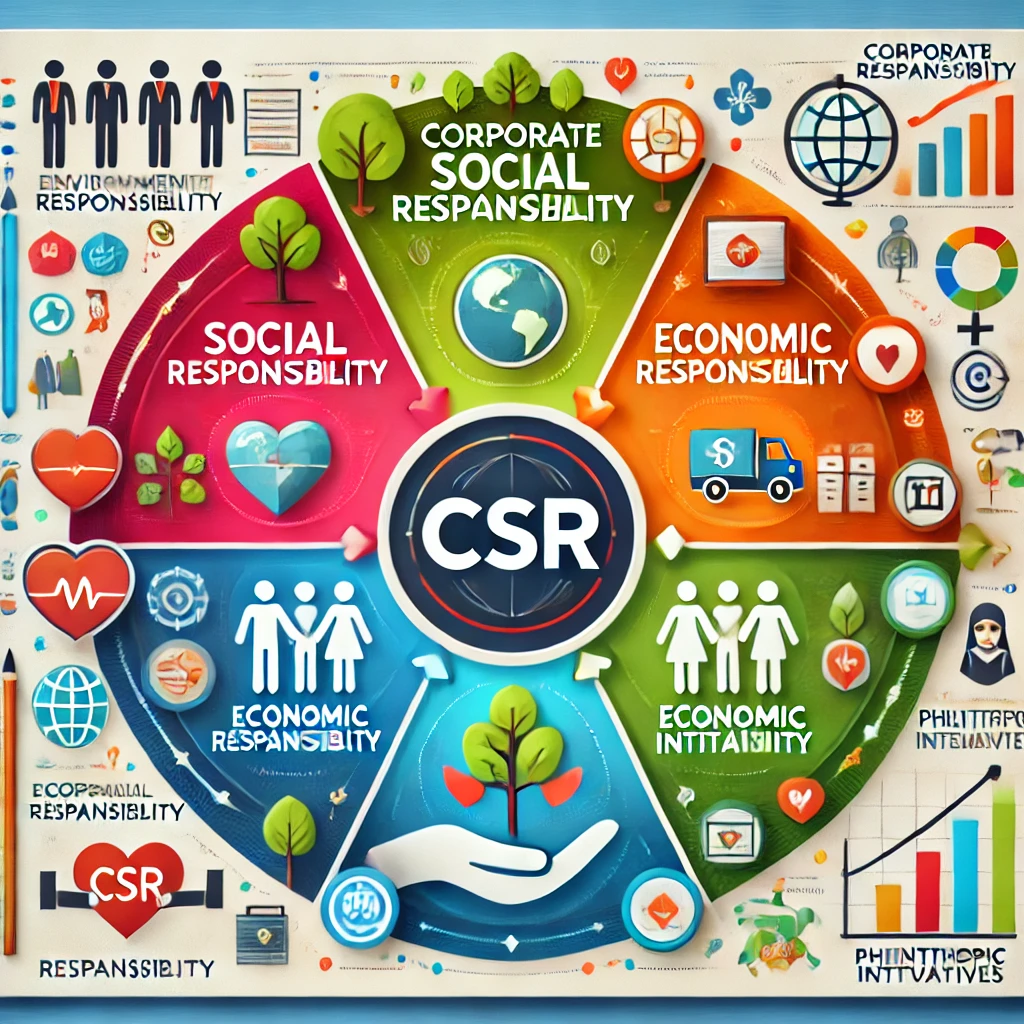Corporate Social Responsibility (CSR): Building a Better Tomorrow
Corporate Social Responsibility (CSR) isn’t just a legal requirement—it’s a powerful commitment by companies to create a positive impact on society, the environment, and the economy. In India, CSR is not just about profit margins; it’s about building trust, creating opportunities, and driving meaningful change.
—
1. Who Needs to Follow CSR Rules?
Companies meeting any one of the following criteria in a financial year must comply with CSR:
✅ Net Worth: ₹500 crore or more
✅ Turnover: ₹1,000 crore or more
✅ Net Profit: ₹5 crore or more
Such companies must:
Form a CSR Committee.
Spend at least 2% of their average net profit (of the last 3 years) on CSR activities.
Did you know? Companies can’t spend CSR funds on their regular business activities—it must go towards genuine social impact initiatives.
—
2. The Role of the CSR Committee
Every eligible company must set up a CSR Committee with:
✅ At least 3 Directors (1 Independent Director is mandatory for public companies).
✅ Responsibilities:
Create and monitor the CSR Policy.
Recommend specific CSR activities and budgets.
Ensure transparent implementation of CSR projects.
Quick Fact: Unlisted or private companies can operate with just 2 Directors on their CSR committee.
—
3. What Counts as CSR Activities? (Schedule VII Highlights)
CSR funds must be directed toward activities that create real societal value, including:
✅ Fighting Hunger & Malnutrition: Feeding programs and nutritional drives.
✅ Promoting Education: Scholarships, school infrastructure, digital literacy.
✅ Environmental Sustainability: Clean energy, waste management, reforestation.
✅ Gender Equality: Women empowerment programs.
✅ Healthcare Initiatives: Free medical camps, sanitation, clean water projects.
✅ Sports Promotion: Support for sports training and facilities.
✅ Support for National Funds: Contributions to PM CARES Fund and similar initiatives.
❌ Excluded: Donations to political parties or activities benefiting only employees.
—
4. CSR Expenditure: How Much to Spend?
✅ Companies must allocate 2% of their average net profit (last 3 financial years) towards CSR.
✅ Unspent CSR funds:
Transferred to a separate CSR account within 30 days.
If still unused, sent to a Government-specified fund within 6 months.
Transparency Alert: Surplus CSR funds cannot become part of business profits—they must be reinvested in CSR initiatives.
—
5. CSR Reporting: Accountability Matters
✅ Companies must publish a detailed CSR report as part of their Annual Report.
✅ The report must include:
CSR Policy highlights.
Details of projects and funds spent.
Justification for any under-spending.
✅ Form CSR-2: A mandatory annual compliance form must be filed with the Ministry of Corporate Affairs (MCA).
—
⚖️ 6. Penalties for Non-Compliance
Company Penalty: ₹50,000 to ₹25,00,000
Officer Penalty: Fine up to ₹5,00,000 and/or imprisonment up to 3 years
Tip: Proactive CSR implementation isn’t just about avoiding penalties; it’s about building a trustworthy brand image.
—
️ 7. Collaboration with NGOs & Trusts
✅ CSR funds can be channeled through:
Registered NGOs
Section 8 Companies (Non-Profit Organizations)
Registered Trusts/Societies with at least 3 years of proven track record
✅ Mandatory MCA Registration for all implementing agencies.
Real Impact: Collaborating with experienced NGOs ensures that every rupee spent creates maximum social impact.
—
8. Recent Updates in CSR Rules (2021 Onwards)
✅ Impact Assessments: Mandatory for companies spending ₹10 crore or more on CSR projects.
✅ Administrative Overheads: Capped at 5% of total CSR expenditure.
✅ Enhanced Transparency: Detailed disclosures about CSR projects and spending are now required.
—
Why CSR is More Than Just a Legal Obligation?
✅ Stronger Brand Reputation
✅ Better Stakeholder Trust
✅ Attracting Investors and Customers
✅ Increased Employee Engagement and Retention
✅ Sustainable Long-Term Growth
A Thought to Ponder: “CSR isn’t an expense; it’s an investment in society and the future.
—
—


